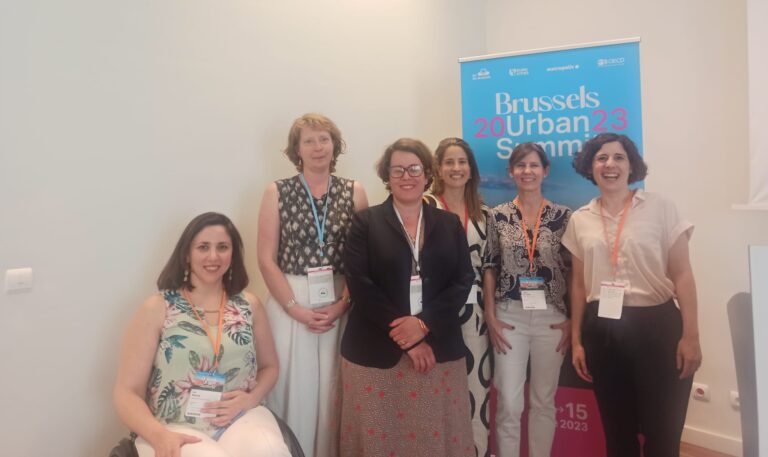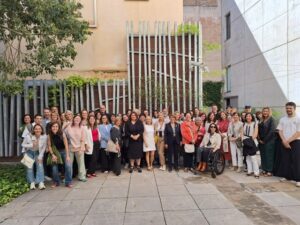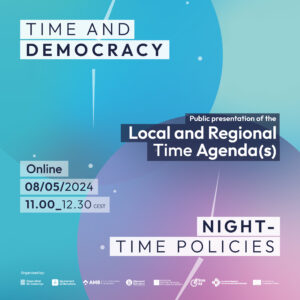The Time Use Initiative (TUI) was invited to participate in the Brussels Urban Summit (BUS) 2023, one of the biggest events that bring together international city officers and political representatives to exchange ideas and set priorities for sustainable, affordable, and liveable cities.
The Brussels Urban Summit is an initiative of the Brussels City Council, Eurocities, Metropolis and the OECD Champion Mayors for Inclusive Growth Initiative. The meeting summoned three major international urban conferences: the 14th Metropolis World Congress, the Annual Eurocities Conference, and the sixth meeting of the OECD Champion Mayors. It brought together more than 300 cities from around the world and more than 1,000 policy officers, experts, and representatives of civil society, to exchange ideas and set priorities for the cities of the future on their path to being more sustainable, liveable and accessible to everyone.
The meeting included a varied programme of plenary sessions, workshops and site visits, all aimed at promoting exchange and strategic debate on our urban future. In this context, the Local and Regional Governments Time Network delivered a workshop on time policies, under the title “Time Policies: an opportunity to live better in our cities.”
The workshop took place on June 13 from 16:00 p.m. to 17:30 p.m., in the Square building in Brussels and was conducted by the TUI, as the network’s technical secretariat. The workshop was able to set a common understanding of the concept of time policies and offer a self-diagnosis questionnaire to the participants to assess the current status of their institutions. The results showed a suspected result: although most of the participants were unaware of the time policies concept, they were able to identify at least three types of time policies being applied in their cities. Digitalization of municipal services and mobility policies were the ones most commonly identified.
The workshop also had the participation of representatives from different municipalities from the Network: Laura de Caralt, from the Gender and Time Policies Service at the Barcelona City Council; Marina Lafay, Councillor for Time Policies at Strasbourg City Council; and Diana Rodríguez, Secretary for Women at Bogotá City Council. All of them shared inspiring and powerful examples of how time policies could be successfully implemented, especially in the areas of care and mobility.
Ariadna Güell, TUI’s co-coordinator, expressed that “this was an excellent opportunity to put time policies on the international urban agenda, expand the network of local and regional governments for time policies, and push forward discussion towards a more sustainable, efficient, inclusive and healthier society for all.”
A summary of the key concepts explained during the workshop, as explained by BTUI’s team Ariadna Güell and Lía Barrese, can be retrieved here:








